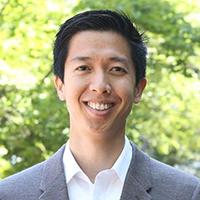Date:
Location:
RSVP
How do course evaluations improve teaching and learning? Andrew Ho, PhD
Andrew Ho, PhD
Professor of Education
Harvard Graduate School of Education
PRESENTATION SLIDES: CLICK HERE
Overview:
We intend course evaluations to answer three questions, from three audiences, for three purposes. 1) From prospective students, for course selection, "What did my fellow students think about this course last year?" 2) From instructors, to improve their instruction, "What did my students think that I could do better next year?" 3) From administrators, to inform promotions and tenure, "Is this candidate fulfilling or excelling in the teaching mission of this school?" Through poor design, poor timing, and poor analysis, all three audiences are underusing and misusing data from course evaluations. I will review best principles from the design, reporting, and deployment of course evaluations. I also propose some pilot studies to improve the use of course evaluations for each audience, for each purpose.
Biography:
Andrew Ho is professor of education at the Harvard Graduate School of Education. He is a psychometrician whose research aims to improve the design, use, and interpretation of test scores in educational policy and practice. Ho is known for his research documenting the misuse of proficiency-based statistics in state and federal policy analysis. He has also clarified properties of student growth models for both technical and general audiences. His scholarship advocates for designing evaluative metrics to achieve multiple criteria: metrics must be accurate, but also transparent to target audiences and resistant to inflation under perverse incentives. Ho is a member of the National Assessment Governing Board that sets policy for the National Assessment of Educational Progress. He also chairs the Research Committee for the Harvard University Vice Provost for Advances in Learning, where he leads research initiatives in online learning at scale. He holds his Ph.D. in Educational Psychology and his M.S. in Statistics from Stanford University. Before graduate school, he taught middle school creative writing in his hometown of Honolulu, Hawaii, and high school physics and AP physics in Ojai, California.
